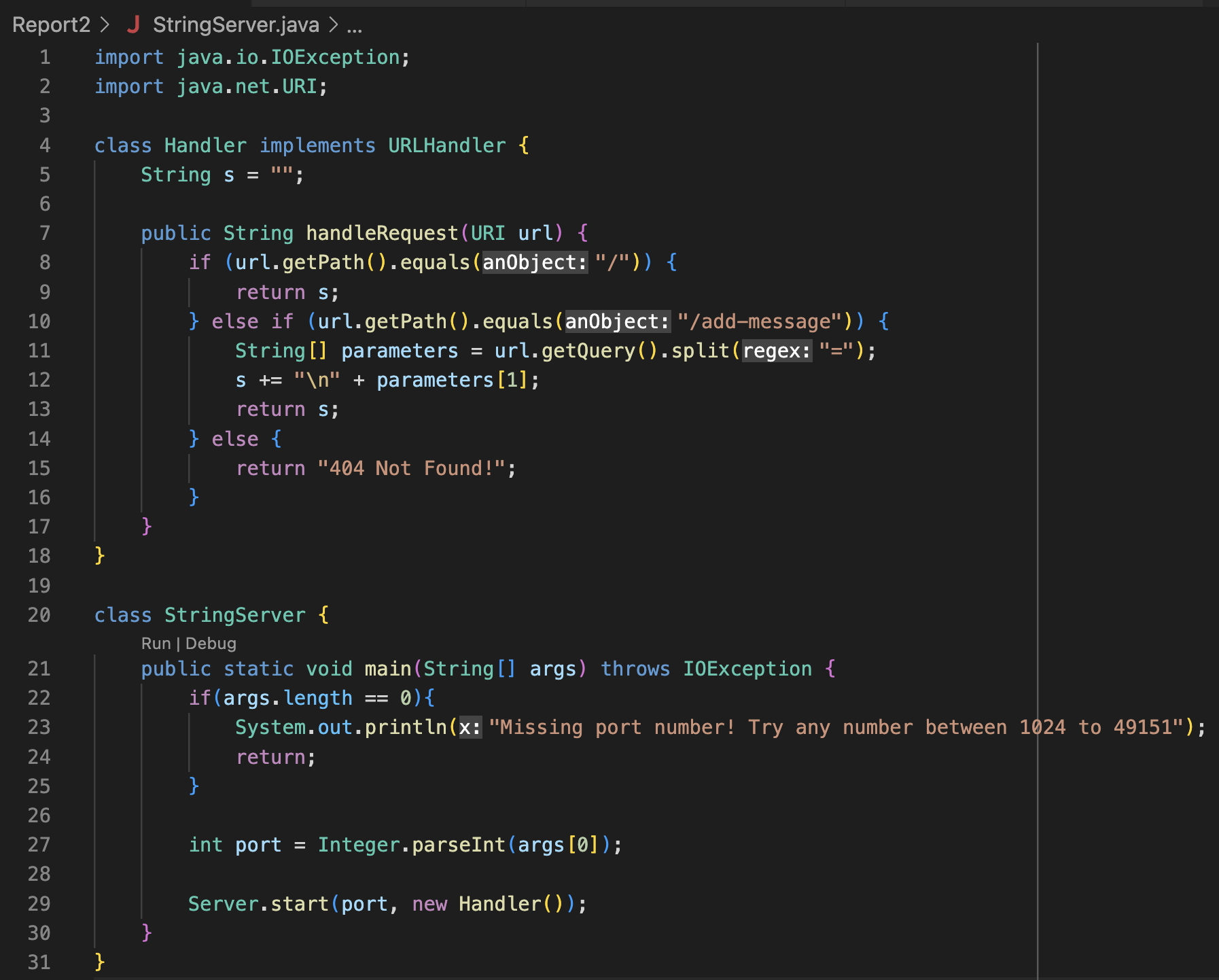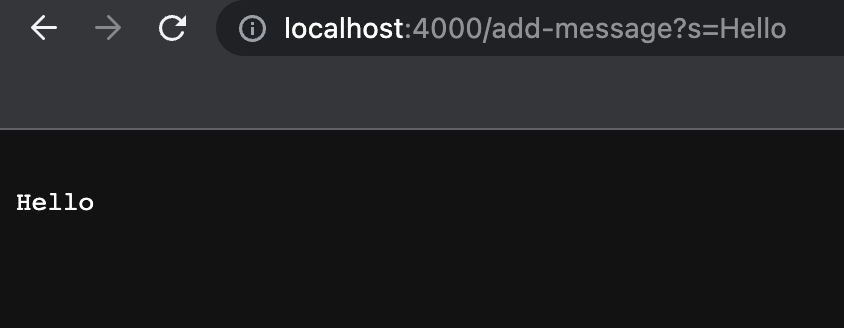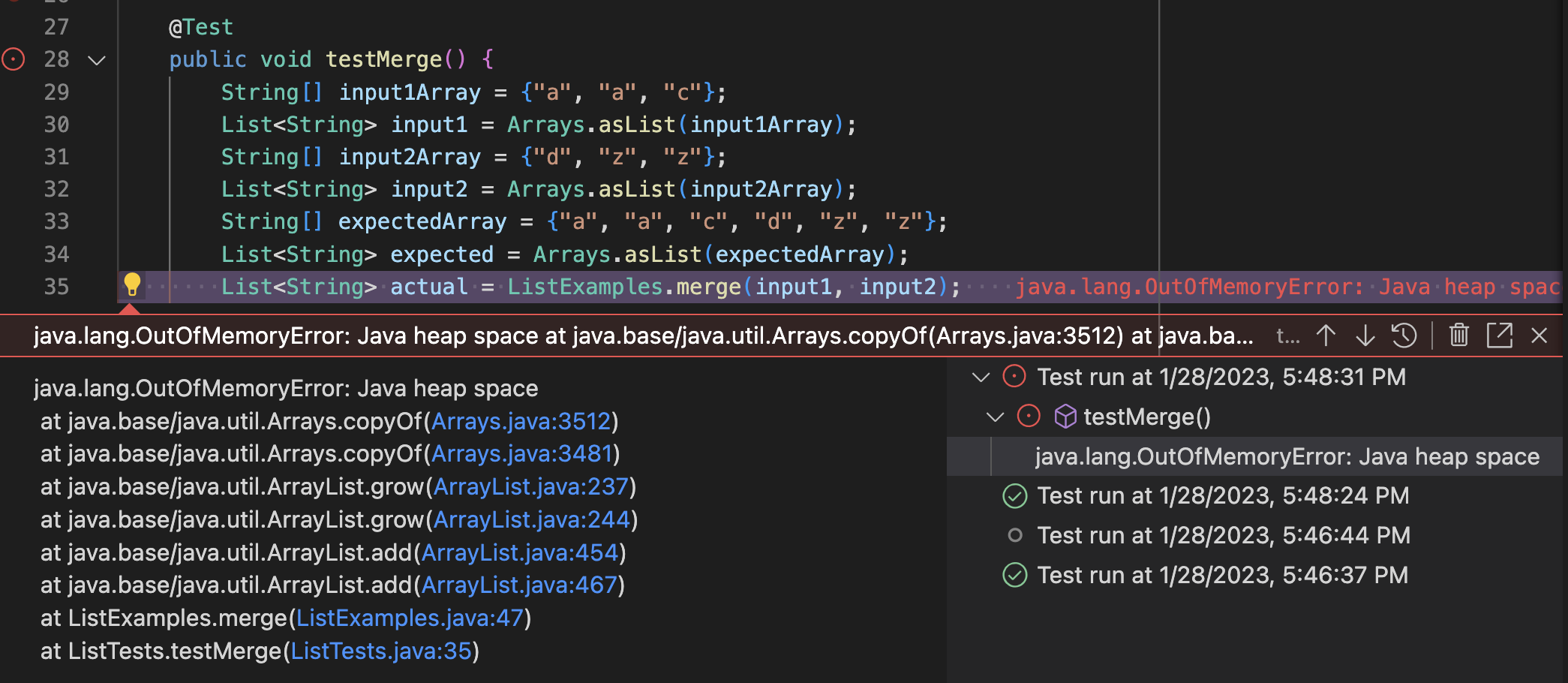cse15l-lab-reports
Week 3 Lab Report: Servers and Bugs
Part 1
The following is a screenshot of the code for my StringServer

Here are two examples of using /add-message

- The method
handleRequestis called with the argumentnew URI("localhost:4000/add-message?s=Hello") - The String
schanged from the empty string""to"\nHello"after this request

- The method
handleRequestis called with the argumentnew URI("localhost:4000/add-message?s=How%20are%20you%20") - The String
schanged from"\nHello"to"\nHello\nHow are you"after this request
Part 2
In lab 3, there was a bug in the merge method in ListExamples.java.
This is an example of a failure-inducing input for the buggy program
@Test
public void testMerge() {
String[] input1Array = {"a", "a", "c"};
List<String> input1 = Arrays.asList(input1Array);
String[] input2Array = {"d", "z", "z"};
List<String> input2 = Arrays.asList(input2Array);
String[] expectedArray = {"a", "a", "c", "d", "z", "z"};
List<String> expected = Arrays.asList(expectedArray);
List<String> actual = ListExamples.merge(input1, input2);
assertEquals(expected, actual);
}
Here is the symptom of this failed test

This is an example of an input that doens’t induce a failure
@Test
public void testMergeEmpty() {
List<String> input1 = new ArrayList<>();
List<String> input2 = new ArrayList<>();
List<String> expected = new ArrayList<>();
List<String> actual = ListExamples.merge(input1, input2);
assertEquals(expected, actual);
}
Here is the output of running this test

In the last while loop of the merge method, there was a line that said
index1 += 1;
instead of
index2 += 1;
Changing this line fixes the issue because initially, the code incremented index1 instead of index2. This caused the while loop to be always true, resulting in an infinite loop.
Part 3
My most important takeaway is the importance of testing your code thoroughly. It’s not always obvious that your program has a bug because a bug won’t result in an error in every single test case. Sometimes you may write a few test cases that all pass, but there could be a few edge cases that you didn’t consider.